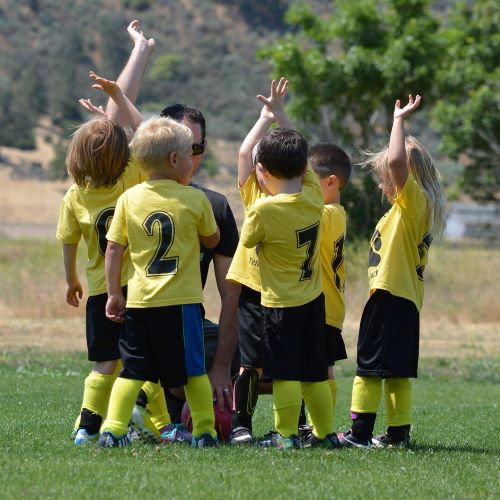04 February 2020
 Over a quarter of Australians are obese, and more than a third are overweight, and while much focus of the current sports grant scandal has been on political interference, University of South Australia sports experts are calling attention to the potential health and fitness consequences arising from mismanagement of resources for sport.
Over a quarter of Australians are obese, and more than a third are overweight, and while much focus of the current sports grant scandal has been on political interference, University of South Australia sports experts are calling attention to the potential health and fitness consequences arising from mismanagement of resources for sport.
UniSA world-renowned expert in sports administration, Associate Professor Ian O’Boyle, says the harm caused by inappropriate management in the sector has a very real impact on the well-being of the community.
“Funding is already incredibly difficult to obtain for many community sports clubs, particularly those that do not operate out of local government owned infrastructure and cannot benefit from the maintenance and upgrades that local governments undertake in those facilities,” Assoc Prof O’Boyle says.
“To make up the deficit in funding that may otherwise have been provided by this scheme, the onus will be placed on members, parents and families to ensure such clubs can continue to operate and provide vital community services in the delivery of sport and recreation.
“The already high cost of sport participation will likely rise in these clubs, further marginalising those from vulnerable and disadvantaged communities and creating increased barriers and constraints to active sport participation.”
Assoc Prof O’Boyle’s concerns are echoed by movement and exercise expert Professor Tim Olds, who says the cost associated with sports is often prohibitive for many families, and as such, economic disadvantage may have a direct impact on the health of children.
"Sports account for 40 per cent of all the time kids spend in moderate to vigorous physical activity (MVPA), and 50 per cent of all the energy they expend in MVPA,” Prof Olds says.
“The rest is accounted for by walking and cycling, and free play. Kids from poorer households spend less time playing sport, probably due at least in part to the cost of uniforms, equipment, lessons and subscriptions. There is evidence that sports participation has been declining over recent decades, accompanied by a decline in fitness and an increase in fatness."
Well beyond the issue of whether former senator Bridget McKenzie misappropriated funds in a manner amounting to political corruption, Assoc Prof Boyle says her actions directly contradicted the Government’s stated policy initiatives aimed at addressing national fitness levels.
“The government’s own policies of tackling the obesity epidemic and sedentary lifestyles through increased activity in sport and physical recreation seems to have had little resonance while Bridget McKenzie was making these funding decisions.
“In 2018 Sport Australia went through a complete strategic shift to focus more on these very issues. They have been caught in the middle of this saga and even warned the government that McKenzie’s interference in the $100m grant scheme was compromising the organisation’s independence.”
Assoc Prof O’Boyle notes McKenzie, a shooting enthusiast, approved over $1m of taxpayer support to shooting clubs across Australia, which is an unprecedented level of funding for an activity that is prohibited for children under 12 years of age in most parts of the country.
He also emphasises that while McKenzie’s resignation was significant, larger questions still linger about the management of the grants program, and if left unaddressed, the situation could potentially have far reaching, long-term consequences that may further reduce access to sport for many Australians.
“It is the thousands of volunteers and community sports clubs that are the lifeblood of the sport and recreation industry in Australia,” Assoc Prof Boyle says.
“The impact of the flaws entrenched in the Community Sports Infrastructure Grants scheme has eroded the trust of sports volunteers who would have spent thousands of hours collectively writing grant proposals and who are in dire need of funding to support the sporting activities of their clubs.
“As a consequence, it will be difficult for clubs to encourage volunteers to work on future funding applications if they feel the process involved will be corrupted by self-serving politicians.”
………………………………………………………………………………………………………………………
Media: Dan Lander | mobile: 0408 882 809 | email: dan.lander@unisa.edu.au




